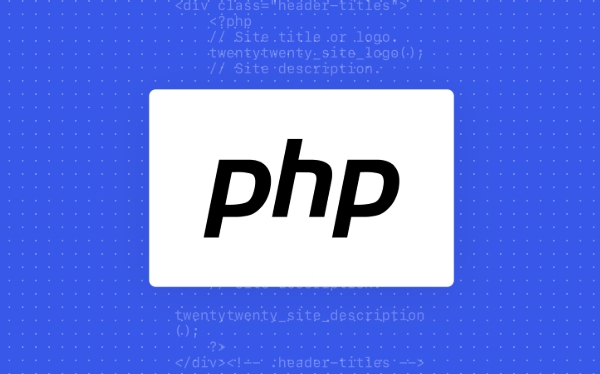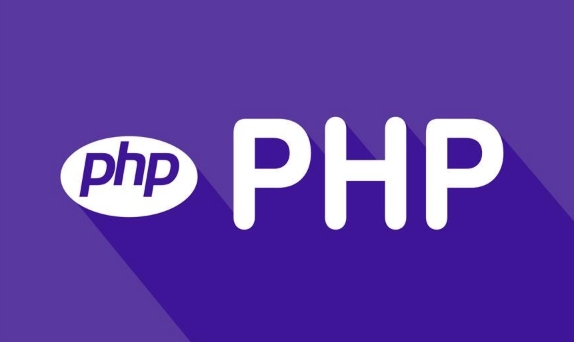There are two ways to pass parameters in PHP: by value and by reference. Passing by value is the default method. Functions operate on variable copies and do not affect the original variables; for example, modifying $num in addOne function does not affect the external $a. Passing by reference is achieved by adding an & symbol before the parameter. Operations within the function directly affect the original variable. If modifying $num will change the external $a. Reference passing is suitable for situations where original variables need to be modified, memory-saving processed by large objects, or implemented specific design patterns. However, you need to pay attention to logical complexity and avoid arbitrary use of references to basic types. PHP objects are passed in handles by default, with similar behaviors but different mechanisms. Passing by value is safer, passing by reference is more flexible but requires caution.

In PHP, there are two ways to pass function parameters: pass by value and pass by reference. Understanding their differences can help you avoid common mistakes and also allow you to write clearer and more controllable code.

What is value-based delivery?
Passing by value is the default parameter delivery method in PHP. That is to say, when you pass a variable to a function, the function operates internally on a copy of the variable and will not affect the original variable.
For example:

function addOne($num) {
$num = 1;
}
$a = 5;
addOne($a);
echo $a; // Output is still 5 In this example, the value of $a is passed to $num , and the modification of $num inside the function will not affect $a itself. The advantage of this method is that it is safe and does not accidentally modify the original data.
What is passing by reference?
Passing by reference means that the function operates internally on the original variable itself, not its copy. If you want the function to modify the variables passed in, you need to use reference passes.

In PHP, reference passing is achieved by adding & symbol before function parameters:
function addOne(&$num) {
$num = 1;
}
$a = 5;
addOne($a);
echo $a; // Output 6 Here, $a is passed in as a reference, and the modification of $num inside the function will directly affect $a . This method is suitable for situations where variables need to be "modified in place", such as batch processing of arrays, status updates, etc.
When should I pass it with a reference?
- You need to modify the original variable : for example, write a function to clean or modify the passed array.
- Save memory when handling large objects : Although PHP defaults to reference passing (object handle) for objects, if you pass an object array or complex structure, using references can avoid copying the entire structure.
- Implement specific design patterns : such as observer mode, callback processing, etc., and reference transfer can more conveniently share state.
But it should also be noted that reference passing will make the code logic less intuitive, especially when variables are modified in multiple places, which can easily cause confusion.
Some details to pay attention to
- When the function is defined,
&is added. When calling, you don’t need to add it. Just pass the variable directly. - Do not use references to basic types (such as int, string) casually unless you really need to modify the original value.
- PHP objects are "handle" passed by default, and behave like references, but not real reference mechanisms.
Overall, passing by value is safer and suitable for most cases; passing by reference is more flexible, but requires caution. Understanding the difference between these two can give you a more control over the writing function.
Basically that's it.
The above is the detailed content of php function pass by reference vs pass by value. For more information, please follow other related articles on the PHP Chinese website!

Hot AI Tools

Undress AI Tool
Undress images for free

Undresser.AI Undress
AI-powered app for creating realistic nude photos

AI Clothes Remover
Online AI tool for removing clothes from photos.

Clothoff.io
AI clothes remover

Video Face Swap
Swap faces in any video effortlessly with our completely free AI face swap tool!

Hot Article

Hot Tools

Notepad++7.3.1
Easy-to-use and free code editor

SublimeText3 Chinese version
Chinese version, very easy to use

Zend Studio 13.0.1
Powerful PHP integrated development environment

Dreamweaver CS6
Visual web development tools

SublimeText3 Mac version
God-level code editing software (SublimeText3)
 PHP Variable Scope Explained
Jul 17, 2025 am 04:16 AM
PHP Variable Scope Explained
Jul 17, 2025 am 04:16 AM
Common problems and solutions for PHP variable scope include: 1. The global variable cannot be accessed within the function, and it needs to be passed in using the global keyword or parameter; 2. The static variable is declared with static, and it is only initialized once and the value is maintained between multiple calls; 3. Hyperglobal variables such as $_GET and $_POST can be used directly in any scope, but you need to pay attention to safe filtering; 4. Anonymous functions need to introduce parent scope variables through the use keyword, and when modifying external variables, you need to pass a reference. Mastering these rules can help avoid errors and improve code stability.
 How to handle File Uploads securely in PHP?
Jul 08, 2025 am 02:37 AM
How to handle File Uploads securely in PHP?
Jul 08, 2025 am 02:37 AM
To safely handle PHP file uploads, you need to verify the source and type, control the file name and path, set server restrictions, and process media files twice. 1. Verify the upload source to prevent CSRF through token and detect the real MIME type through finfo_file using whitelist control; 2. Rename the file to a random string and determine the extension to store it in a non-Web directory according to the detection type; 3. PHP configuration limits the upload size and temporary directory Nginx/Apache prohibits access to the upload directory; 4. The GD library resaves the pictures to clear potential malicious data.
 Commenting Out Code in PHP
Jul 18, 2025 am 04:57 AM
Commenting Out Code in PHP
Jul 18, 2025 am 04:57 AM
There are three common methods for PHP comment code: 1. Use // or # to block one line of code, and it is recommended to use //; 2. Use /.../ to wrap code blocks with multiple lines, which cannot be nested but can be crossed; 3. Combination skills comments such as using /if(){}/ to control logic blocks, or to improve efficiency with editor shortcut keys, you should pay attention to closing symbols and avoid nesting when using them.
 How Do Generators Work in PHP?
Jul 11, 2025 am 03:12 AM
How Do Generators Work in PHP?
Jul 11, 2025 am 03:12 AM
AgeneratorinPHPisamemory-efficientwaytoiterateoverlargedatasetsbyyieldingvaluesoneatatimeinsteadofreturningthemallatonce.1.Generatorsusetheyieldkeywordtoproducevaluesondemand,reducingmemoryusage.2.Theyareusefulforhandlingbigloops,readinglargefiles,or
 Tips for Writing PHP Comments
Jul 18, 2025 am 04:51 AM
Tips for Writing PHP Comments
Jul 18, 2025 am 04:51 AM
The key to writing PHP comments is to clarify the purpose and specifications. Comments should explain "why" rather than "what was done", avoiding redundancy or too simplicity. 1. Use a unified format, such as docblock (/*/) for class and method descriptions to improve readability and tool compatibility; 2. Emphasize the reasons behind the logic, such as why JS jumps need to be output manually; 3. Add an overview description before complex code, describe the process in steps, and help understand the overall idea; 4. Use TODO and FIXME rationally to mark to-do items and problems to facilitate subsequent tracking and collaboration. Good annotations can reduce communication costs and improve code maintenance efficiency.
 Quick PHP Installation Tutorial
Jul 18, 2025 am 04:52 AM
Quick PHP Installation Tutorial
Jul 18, 2025 am 04:52 AM
ToinstallPHPquickly,useXAMPPonWindowsorHomebrewonmacOS.1.OnWindows,downloadandinstallXAMPP,selectcomponents,startApache,andplacefilesinhtdocs.2.Alternatively,manuallyinstallPHPfromphp.netandsetupaserverlikeApache.3.OnmacOS,installHomebrew,thenrun'bre
 How to access a character in a string by index in PHP
Jul 12, 2025 am 03:15 AM
How to access a character in a string by index in PHP
Jul 12, 2025 am 03:15 AM
In PHP, you can use square brackets or curly braces to obtain string specific index characters, but square brackets are recommended; the index starts from 0, and the access outside the range returns a null value and cannot be assigned a value; mb_substr is required to handle multi-byte characters. For example: $str="hello";echo$str[0]; output h; and Chinese characters such as mb_substr($str,1,1) need to obtain the correct result; in actual applications, the length of the string should be checked before looping, dynamic strings need to be verified for validity, and multilingual projects recommend using multi-byte security functions uniformly.
 Learning PHP: A Beginner's Guide
Jul 18, 2025 am 04:54 AM
Learning PHP: A Beginner's Guide
Jul 18, 2025 am 04:54 AM
TolearnPHPeffectively,startbysettingupalocalserverenvironmentusingtoolslikeXAMPPandacodeeditorlikeVSCode.1)InstallXAMPPforApache,MySQL,andPHP.2)Useacodeeditorforsyntaxsupport.3)TestyoursetupwithasimplePHPfile.Next,learnPHPbasicsincludingvariables,ech






